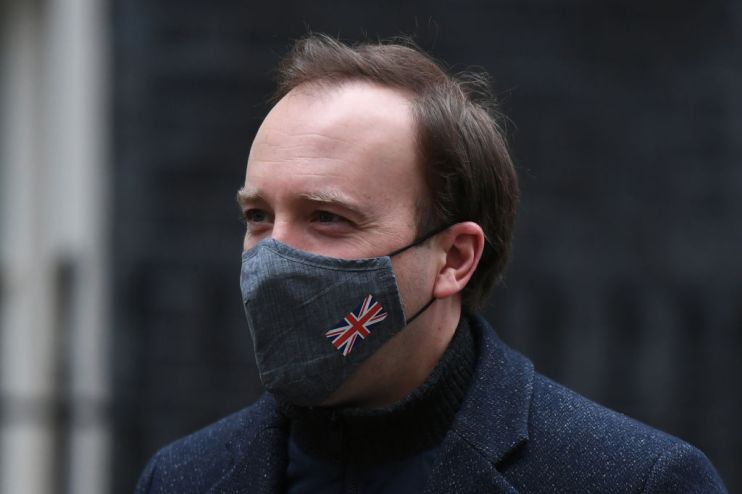Matt Hancock: No guarantee that coronavirus laws will end in six months

The health secretary has refused to commit to ripping up the Coronavirus Act in six months, telling MPs that emergency Covid laws could stay in place for another year.
Speaking at a Commons debate on a potential extension of the legislation, Matt Hancock said: “There are parts of this Act that have allowed us to do good things that everybody would like to see like that.
“When we do come to retire this Act, which we must within one year and preferably within six months, we will need to make sure that we can continue to do that sort of thing and make sure that nurses can be enrolled as easily as possible into the NHS.”
He added: “But I cannot answer whether we will be retiring it in six months. My preference would be yes, but given the last year, I think a prediction would be hasty.”
The Coronavirus Act was introduced as a temporary measure in March last year to grant minsters emergency powers during the pandemic. It hands the government the ability to enforce Covid restrictions such as national lockdowns, “stay at home orders” and the closure of schools.
MPs are set to vote on an extension of the Coronavirus Act this evening, which if passed would hand the government powers to enforce Covid rules for another six months.
An extension will not mean lockdown restrictions are set to be rolled over until October, but that the government will retain the power to enforce sweeping measures at any time during the extension period.
The Prime Minister has insisted that all Covid restrictions are due to expire on 21 June under his roadmap for leaving lockdown.
This evening’s vote on the Coronavirus Act is expected to pass, with Labour set to support the extension.
However, as many as 60 Conservative MPs could rebel against the extension amid concerns that restrictions will be written into law far beyond the conclusion of the PM’s roadmap.
Steve Baker, deputy chairman of the lockdown-sceptic Covid Recovery Group, said the measures were “excessive and disproportionate”, and that the emergency powers “should now go”.
He added that today’s vote on the extension provided a “rare opportunity for MPs to say no to a new way of life in a checkpoint society, under extreme police powers, that we would not have recognised at the beginning of last year.”
The Liberal Democrats are also set to oppose the extension, with leader Ed Davey accusing the government of trying to secure a “blank cheque” for introducing new restrictions.
The government has insisted that keeping the act in place is vital for ensuring that support schemes such as furlough can legally continue.
“Keeping the act in place will continue to provide important support to individuals, businesses and allow essential public services to function,” a government spokesperson said.